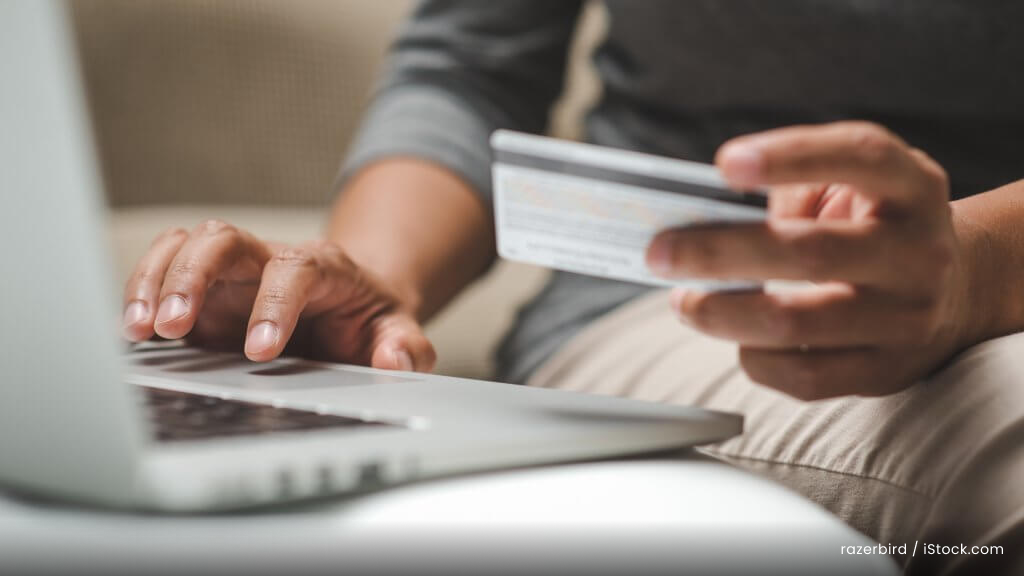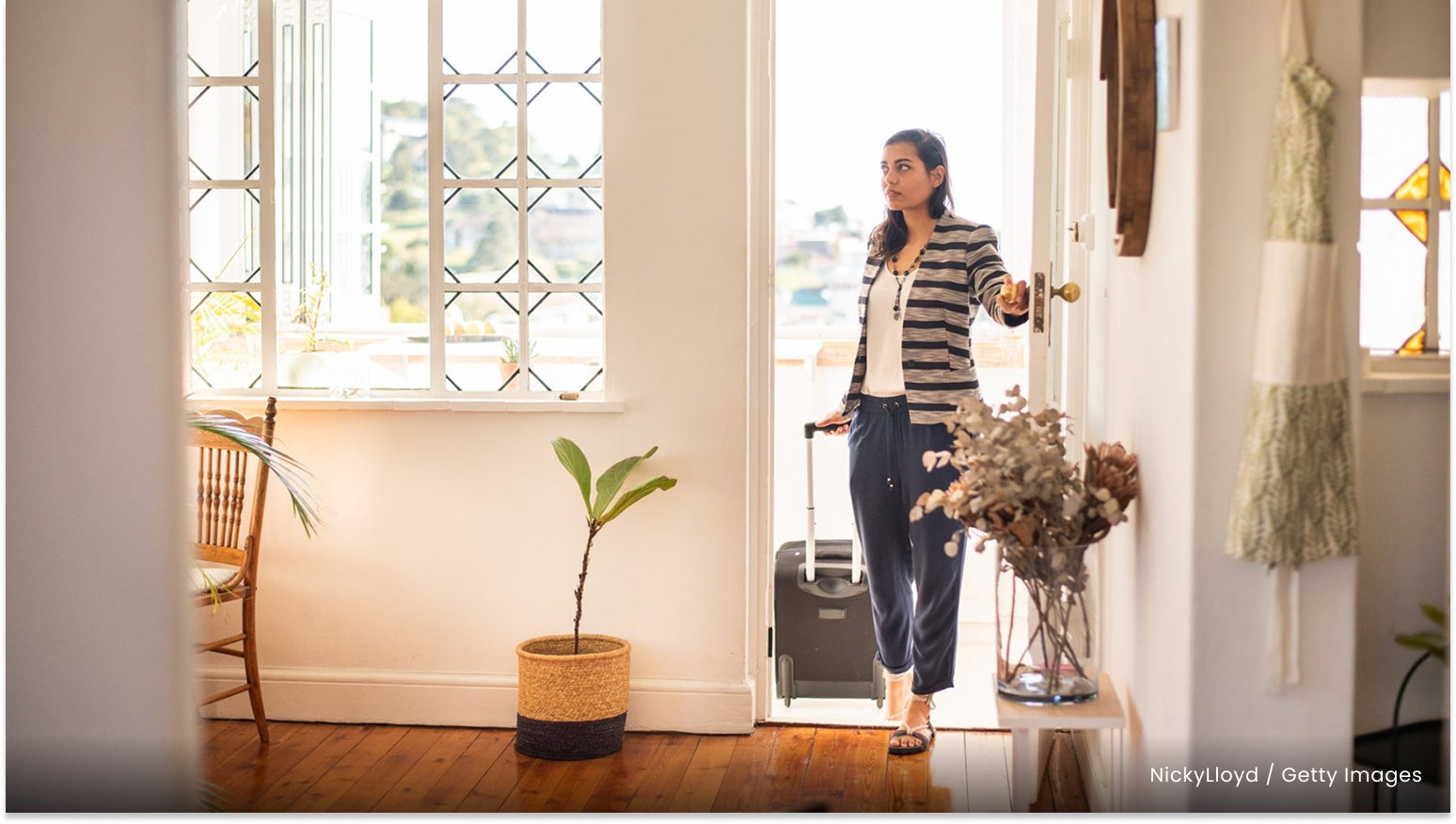7 Ways To Protect Your Credit Cards During Summer Travel

Summer travel season is here, and for many of us, that means relying on credit cards for everything from checking into hotels to grabbing an iced coffee at the airport. As convenient as cards are, they can also be magnets for fraud, especially when we’re in unfamiliar places or distracted by the excitement of a new destination.
Card fraud losses worldwide were close to $34 billion in 2023, according to the Nilson Report. A lot of that happens when people are traveling, often because it’s easy to let your guard down on the road. The good news? A few simple habits can go a long way toward keeping your cards safe.
Let’s look at seven practical ways to protect your credit cards during your summer adventures.

400+ Credit Cards
Analyzed independently across 50+ data points in 30+ product categories

Reviewed
By a team of credit card experts with an average of 9+ years of experience

Trusted by
More than one million monthly readers seeking unbiased credit card guidance
CardCritics™ editorial team is dedicated to providing unbiased credit card reviews, advice and comprehensive comparisons. Our team of credit card experts uses rigorous data-driven methodologies to evaluate every card feature, fee structure and rewards program. In most instances, our experts are longtime members or holders of the very programs and cards they review, so they have firsthand experience maximizing them. We maintain complete editorial independence — our ratings and recommendations are never influenced by advertiser relationships or affiliate partnerships. You can learn more about our editorial standards, transparent review process and how we make money to understand how we help you make informed financial decisions.
Outsmart Pickpockets and Keep Your Cards Safe
Tourist hotspots and crowded public transit are playgrounds for pickpockets, and they’re getting more creative every year. Situational awareness is your best friend — keep your travel credit cards in a spot that’s hard to reach, like a zipped interior pocket or, yes, the fanny pack (which has made a full-on comeback and is now officially cool again). The beauty of today’s fanny packs? They’re designed to be worn across your chest, making it nearly impossible for someone to sneak their hand in without you noticing.
When you’re not out and about, stash your cards in your hotel safe, along with any spares you don’t need for the day. If you want extra peace of mind, look for an RFID-blocking wallet. The RFID feature isn’t strictly necessary, but it does add a layer of protection against high-tech thieves. A little planning, and maybe a stylish fanny pack, can keep your cards secure while you focus on the fun stuff.
Give Your Bank a Heads-Up Before You Travel
Banks have gotten pretty good at flagging unusual activity, but sometimes that means your card gets declined at the worst possible moment. I learned this the hard way in Panama, when I dusted off a credit card I rarely use and promptly got hit with a fraud alert. Turns out, my bank wasn’t expecting me to be buying ceviche by the canal, and they froze my account until I could confirm it was me.
To avoid this kind of hassle, take a minute before your trip to let your bank know where you’ll be and which cards you’ll be using. Most issuers let you set a travel notice online or through their app. It’s a quick step that can save you from an awkward checkout experience and the headache of sorting things out from a different time zone.
Stay Sharp at ATMs
ATMs are a travel essential, but they’re also a favorite target for scammers, with over 231,000 cards being skimmed in the U.S. alone last year. Skimming devices — those sneaky gadgets that steal your card info — are more common than you might think, especially in busy tourist areas. Before inserting your card, give the slot a quick wiggle; if anything feels loose or looks off, walk away.
A big red flag? Free-standing ATMs, especially those tucked into convenience stores or outside tourist attractions. These are much easier for criminals to tamper with compared to ATMs that are built into the wall at a bank. FICO reports that 73% of reported skimming cases last year came from non-bank ATMs.
When in doubt, stick to machines that are physically attached to a building and ideally located inside a bank lobby. Trust your gut. If an ATM looks sketchy, it’s not worth the risk.
Keep an Eye on Your Accounts
Even the most careful traveler can run into trouble, so it pays to keep tabs on your accounts. Most credit cards offer fraud protection, but you’ll want to catch any suspicious charges as soon as possible. Set up account alerts for every transaction, so you’ll get a ping if something looks odd.
Take a minute each evening to glance at your recent charges. It’s a quick habit that can save you a world of trouble if someone does manage to get hold of your card info. If you spot anything weird, contact your bank right away; they’re usually quick to freeze your card. You can often do this within the bank’s app.
Make Copies of Your Cards and Important Info (and Keep Them Safe)
If your wallet disappears during a trip, the situation can quickly become overwhelming, unless you’ve prepared a backup. Before heading out, take the time to make copies of your credit cards, bank contact details and account logins. Digital copies should be stored somewhere secure, like a password-protected cloud service. If you prefer paper, keep those printouts in a locked suitcase or another place that isn’t easily accessible.
Having this information organized means you won’t waste precious time searching for account numbers or phone contacts if you need to report a lost card. It’s also a good idea to write down the international phone numbers for your card issuers, since toll-free numbers often won’t connect from outside the U.S., and banks are prepared to accept collect calls. A little preparation here can make a big difference if something goes wrong on the road.
Don’t Let Foreign Transaction Fees Sneak Up on You
Nobody likes coming home to a credit card bill loaded with surprise fees. Many cards tack on a foreign transaction fee every time you make a purchase abroad. If you travel often, look for a card that waives these fees — it’s a simple way to save money without thinking about it.
And here’s a pro tip: When a merchant asks if you want to pay in U.S. dollars or local currency, always choose the local option. Dynamic currency conversion usually comes with a worse exchange rate and extra fees. Your bank will almost always give you a better deal — I saw dynamic currency conversion markups of over 10% on a recent trip to France.
Know What Help Is Available in an Emergency
If you’ve ever had a card go missing or found yourself without your wallet in a new city, you know how fast a trip can go off the rails. What’s less obvious is that many credit cards actually come with a suite of travel and emergency services that can help in those moments.
Depending on your card, you might be able to get a replacement sent to you, access emergency cash or even get help tracking down lost luggage. Some issuers will connect you with medical referrals or help you sort out a lost passport — things you probably don’t think about until you need them.
It’s worth taking a few minutes before you leave to look up exactly what your card offers. Jot down the emergency contact numbers and stash them somewhere you can access quickly. You might never use these benefits, but if you do, you’ll be grateful you spent the time. And honestly, it’s easier to relax when you know you’ve got a backup plan — just in case your suitcase decides to take its own detour.













